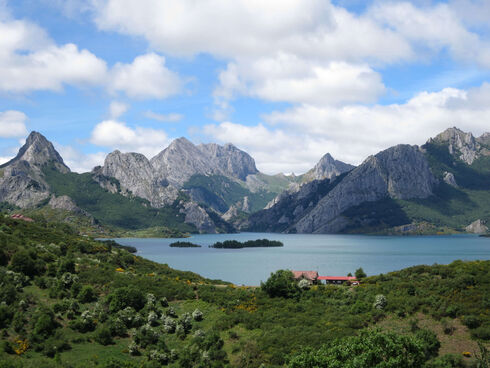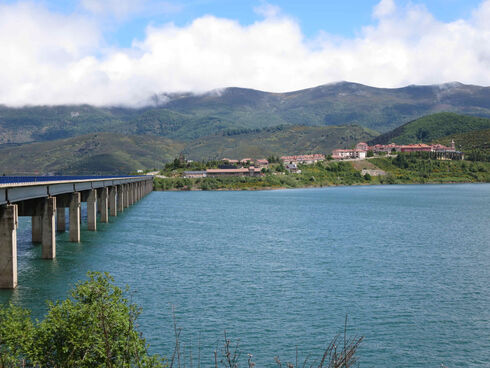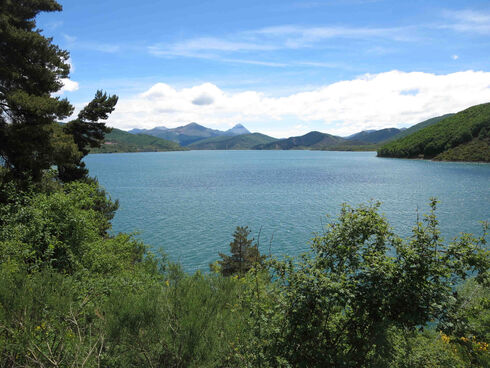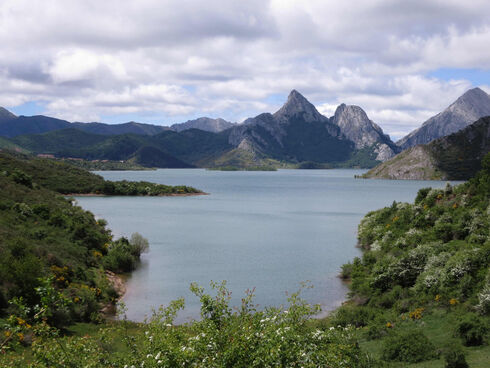
“When the Levee Breaks”
27 May 2022

As the visionary science fiction writer Arthur C. Clarke once mused: “How inappropriate to call this planet Earth when it is quite clearly Ocean.”
And water is a valuable commodity. Speaking at the World Water Tech Innovation Summit in February, Sir James Bevan, chief executive of the Environment Agency, described it as the new gold.
Drinkable fresh water makes up only 2.5 per cent of all the water on the planet, and only 1 per cent of that is accessible. Sir James said that as the global population grows we will experience more and more water stress; US vice president Kamala Harris has warned that wars in future will be fought over water, not oil.
In the region of northern Spain where I'm holidaying this week there is a beautiful lake at the town of Riaño in northern Spain, encircled by limestone mountains. But it is itself a reminder of the potential conflict surrounding water.
That’s because the original Riaño lies deep at the bottom of the lake. The settlement was evacuated and quite literally drowned to create a hydroelectric power facility and to reduce flooding in the rest of the area.
The town was rebuilt at a higher level but inhabitants protested vehemently - and sometimes violently, but ultimately unsuccessfully - to protect their homes before the project’s completion in 1987.
So water must be managed wisely, especially in the light of climate change, which can cause extremes of weather ranging from droughts to flooding events.
Indeed, next week from 1 June, some six million residents in certain parts of Southern California will face water restrictions because of drought. For the first time ever, people there are being ordered to water their lawns and gardens no more than once a week or face $2,000 dollar fines, with officials warning that if the situation worsens all irrigation could be banned in September.
We must conserve this liquid gold, and this applies to business premises as well as construction sites.
Eco-friendly measures from installing tap flow restrictors and recycling the water used to wash down plant, to choosing site welfare cabins with rainwater harvesting or hiring misting devices to suppress dust rather than using running water, can make a huge and vital difference.
● The title of today’s post? Click here.
Photos: Alan Guthrie




